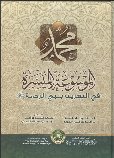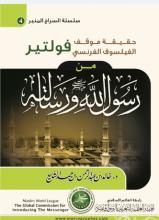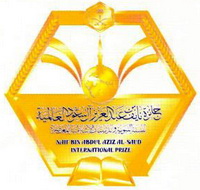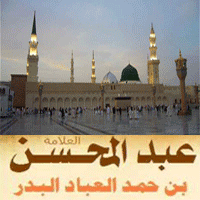The Impact
Ever since the dawn of human life on this planet, Man has always sought to understand Nature, his own place in the scheme of Creation and the purpose of Life and the reason for which he was brought to Earth.
In the Man's quest for Truth, spanning many centuries and diverse civilizations, Islam has shaped human life and determined to a large extent, the course of history.
The Prophet’s Sunnah is not only the second source, right after the Qur’an, of Islamic Shari‘ah (Law), but also the second source, again right after the Qur’an, of which both knowledge and civilization flow.
Primarily, the Qur’an establishes the bases and principles of legislation, whereas the Sunnah provides theoretical interpretation as well as example and practical application.
Allah stated in the Qur'an that to worship Him is the purpose of human existence[1] and He stated that He gave man life on earth in order to test him as to who is best in deeds,[2] meaning the deeds one does while intending worship of Him. For any deed that is done or avoided while seeking the acceptance of Allah automatically becomes an act of worship. However, the Prophet affirmed that Allah does not benefit from the worship of His creations, nor does their refusal harm Him in the least.
One often reads “It is reported that the Prophet (peace and blessings be upon him) said…” or similar words. These reports are known as Hadiths (meaning “statements”, but often called Traditions in English). They have been handed down to us from the Companions, the Muslims who lived at the time of the Prophet.
Muhammad (peace and blessings be upon him) was an illiterate but wise and well-respected man, a member of the ruling Quraysh tribe, who was born in Makkah in the year 570 C.E., at a time when Christianity was not yet fully established in Europe . He was orphaned at an early age and then raised by his uncle Abu Talib.
History has recorded the appearance and deeds of many religious leaders: Moses, Jesus Christ, Zoroaster, and Abraham, to name just a few. There have also been many self-proclaimed prophets and messengers, each of whom has claimed to bring a divine revelation for mankind. Some have proven to be false, and others have been forgotten. But there is one religious leader who stands alone, an unlettered man who transmitted a revelation from God that literally changed the course of history and the destinies of a major portion of mankind: Muhammad, the Prophet and Messenger of God.
In or about the year 570 the child who would be named Muhammad and who would become the Prophet of one of the world's great religions, Islam, was born into a family belonging to a clan of Quraysh, the ruling tribe of Mecca, a city in the Hijaz region of northwestern Arabia.
Islam was revealed to Prophet Mohammad (PBUH) as a merciful and eternal religion that fits for all ages. If during his life man submits to the will of Allah, he can depend on His mercy in life and in the day of Judgement.
"And We have not sent you but as a mercy to the world." Qur'an (21:107)
Prophet Mohammad (PBUH) said:
"Surely, I am a granted mercy."
Pillars Of Islam And Moral Values. Purpose Of Prophethood -- Perfection of Morals
The holy Prophet has stated the foremost purpose of his being sent down in this world and the method of his call to the people in these words: "I have been sent only for the purpose of perfecting good morals." -- (Al-Muta)
What is Ramadhan?
Ramadhan is that time of the year when Muslims recharge their spiritual batteries. For a whole month, they fast from dawn to sunset, and offer additional prayers at night. After the end of Ramadhan comes one of the two Muslim festivals, a day of Eid. On this day, Muslims thank God for His guidance and grace in helping them to control their baser desires and fulfill their spiritual needs.






.jpg)


